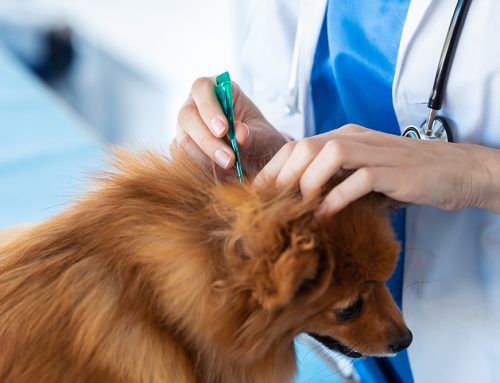As a pet owner, you want to do everything you can to keep your four-legged friend happy, healthy, and by your side for many years to come. A key part of achieving that goal is regular vaccination. These injections are designed to protect your pet from serious, potentially fatal, infectious diseases that can be transmitted easily from other pets and wildlife. Some diseases, like rabies and leptospirosis, also can be transmitted from animals to people, making regular vaccination that much more critical for your community’s safety.
While knowing that your pet needs to be vaccinated regularly is important, understanding what diseases those vaccines protect against is equally important. Read on for information from our Veterinary Medical Center of Indian River County team to learn why your pet’s vaccinations are so powerful at preventing widespread disease.
Core vaccinations for dogs
Core vaccinations are those that are highly recommended for all dogs, regardless of their lifestyle or exposure risk. These vaccines typically protect against diseases that are highly infectious and oftentimes fatal despite treatment. Canine core vaccinations provide protection for one year initially, then generally offer 3-year protection after the initial series has been completed.
Canine core vaccinations include:
- Distemper — Canine distemper causes a wide range of clinical signs that depend on the affected body system. Respiratory illness, gastrointestinal issues, and neurologic problems can result, and dogs who recover from distemper may be permanently afflicted with neurologic conditions.
- Parvovirus — Highly contagious and occasionally fatal, parvovirus mostly infects young puppies and unvaccinated dogs. This disease is known for causing particularly foul-smelling diarrhea that may have blood in it, in addition to vomiting, fever, and lethargy.
- Canine adenovirus type 2 (CAV-2) — While CAV-2 is primarily responsible for respiratory disease in dogs, the CAV-2 vaccine is recommended for all dogs because it also protects against CAV-1. Canine adenovirus type 1 is also known as canine infectious hepatitis, which is a severe and often fatal form of liver disease.
- Rabies — All puppies and adult dogs are required to be vaccinated for rabies, a neurologic disease that always results in death. Since this disease can be transmitted to people or other animals, vaccination is a must for all pets.
Non-core vaccinations for dogs
Non-core vaccinations are ones that are recommended for certain dogs who have a high exposure risk. While these diseases are often as highly infectious as the ones covered by core vaccinations, they are typically not fatal. All canine non-core vaccinations require annual or biannual boosters to maintain immunity.
Canine non-core vaccinations include:
- Leptospirosis — A zoonotic disease, leptospirosis is transmitted through contact with infected urine. Dogs and people can contract this disease by coming in contact with contaminated water or soil, and then develop kidney or liver disease.
- Lyme disease — Transmitted via a bite from a black-legged tick, Lyme disease can cause lifelong illness that manifests as fever, lethargy, shifting leg lameness, and swollen lymph nodes. These signs can wax and wane over time, and the disease may progress to kidney failure.
- Bordetella and influenza — Bordetella bronchiseptica and canine influenza cause respiratory illness, and vaccination is recommended for social dogs. If you plan on taking your dog to a dog park, boarding facility, day care, or grooming facility, they should be vaccinated against these highly infectious respiratory conditions.
Core vaccinations for cats
Although most cats are strictly house pets, some venture out on occasion. They also may be exposed to diseases via the introduction of new pets, your clothing, or boarding situations. So, despite your cat’s indoor-only status, core vaccinations should be administered for their safety.
Feline core vaccinations include:
- Feline herpesvirus 1 (FHV-1) — Also known as feline viral rhinotracheitis, this virus causes severe upper respiratory tract disease. Sneezing and conjunctivitis are the most common signs, and some cases can lead to chronic recurrences of these health problems. Occasionally, oral ulcers and pneumonia also can develop.
- Feline calicivirus (FCV) — The many strains of feline calicivirus prompt upper respiratory disease and oral ulcers in cats, although some also may cause a fever and lameness or subclinical infection. Feline calicivirus also is associated with chronic gingivitis and stomatitis.
- Feline panleukopenia (FPV) — Caused by feline parvovirus, clinical signs include lethargy, anorexia, vomiting, diarrhea, and fever. This disease is highly infectious and often has a high mortality rate, especially among young kittens.
- Rabies — In the U.S. and Canada, where canine rabies has been controlled, cats are typically the most commonly affected domestic species, largely because of their predatory nature.
- Feline leukemia virus (FeLV) — Feline leukemia is considered a core vaccination for cats under 1 year of age. This disease weakens the immune system over time, leaving the affected cat vulnerable to leukemia-associated diseases and secondary infections, like lymphoma, anemia, or oral inflammatory disease.
Non-core vaccinations for cats

Since the majority of cats live a similar lifestyle, few vaccinations make the non-core list. Typically, the only vaccination that becomes a non-core option for cats is feline leukemia, since this vaccine is generally only deemed necessary for adult cats who go outside or who share their home with a revolving group of foster and rescue cats.
Other non-core vaccinations are available, but they are rarely administered because most cats have a minimal exposure risk, or the vaccine itself does not provide as much protection as desired. Additional feline non-core vaccinations include Chlamydia felis and Bordetella bronchiseptica.
Each pet receives a customized vaccination protocol to ensure they are protected as much as possible, without administering unnecessary vaccines. To discuss what vaccines your pet needs, talk to our Veterinary Medical Center of Indian River County team.







Leave A Comment